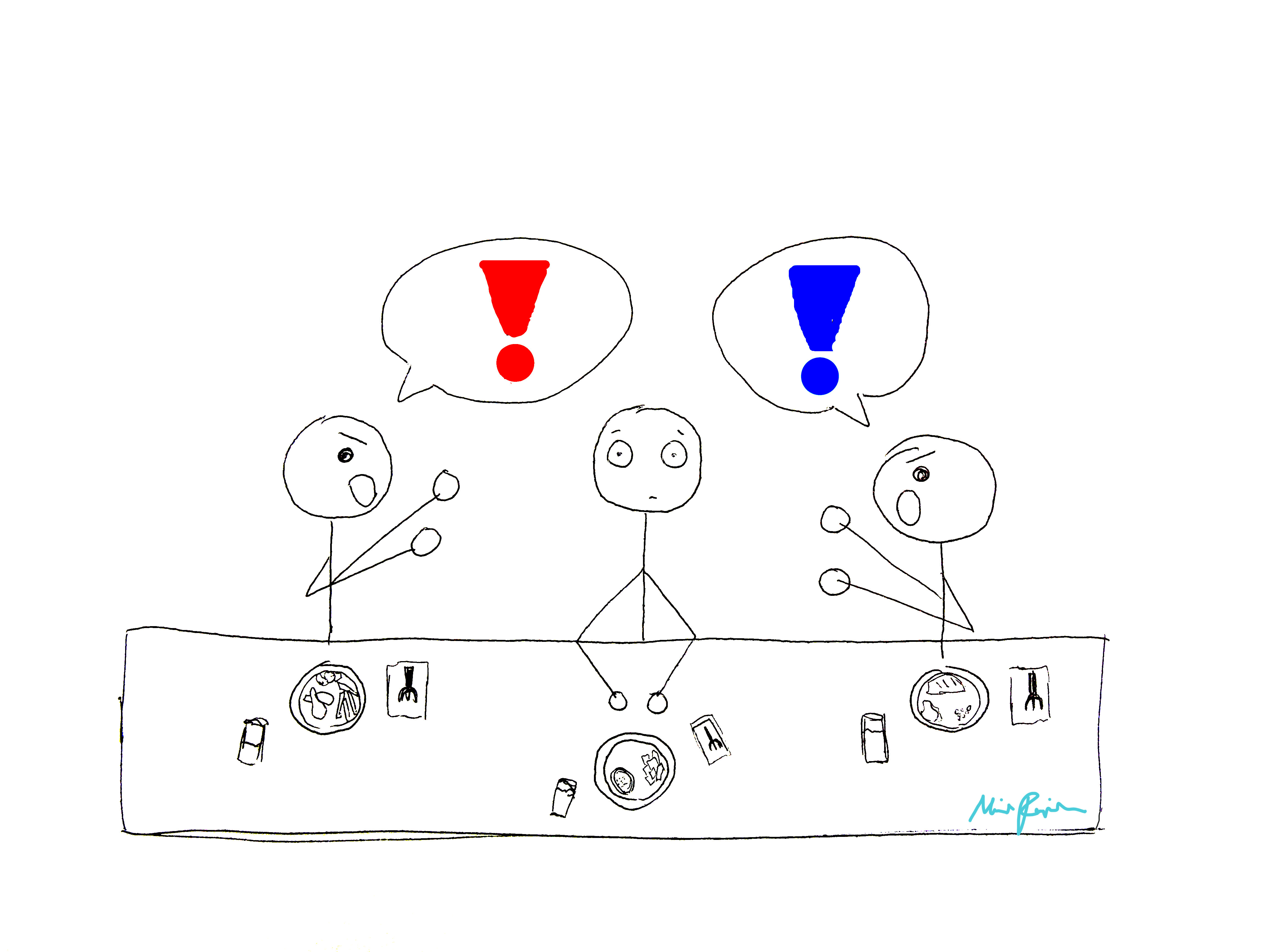Cartoon by Maria Rapisarda
MARIA RAPISARDA | ASST. OPINION EDITOR | mrapisar@butler.edu
Growing up, my parents told me there were four things you do not talk about: money, sex, religion and politics. Obviously, I outgrew this rule quickly and began to ask all of my friends in high school their views on religion and politics.
Needless to say, being a liberal who did not attend church did not help me retain friends in my hometown, nestled nicely in the Bible Belt.
College is a different beast than high school. Usually one can rely on college students for more maturity than high school students, so no topics are off limits. During Welcome Week, professors and upperclassmen urge students to talk to financial aid about money problems they may have or to discuss sexuality and assault with a counselor.
Sometimes these taboo topics can still reach a boiling point and cause conflict, threatening the balance on the college campus. This election year has definitely been a tumultuous one—filled with personal attacks, scandals and fighting within each political party.
The increasing polarity between the parties can even divide friendships. One may feel the need to walk on eggshells in order to not offend anyone. This has nothing to do with political correctness. This is about avoiding confrontation and ruined relationships.
Because of the divisiveness of this election year, one may come to find that a friend or family member has a different opinion. Balancing that relationship and wanting to scream, ‘That’s wrong,’ can be tricky.
Something to keep in mind is to pick certain battles wisely. People will disagree. Make sure to stop and think: is this really worth the argument? Is it worth possibly losing a friend over?
If one does choose to engage in such a conversation, the number one thing to remember is to stay true to their beliefs. People admire others more for sticking to their morals rather than saying something to appease them.
Dr. Nandini Ramaswamy, the director at Butler University’s Office of Institutional Research and Assessment, has a PhD in political science and analysis.
“We live in a democracy,” Ramaswamy said. “A difference of opinion will exist in any democracy, and it should, because that is the basis of a democracy.”
Of course, this does not mean one should berate others for their opinions. Respect them and their ideas. Make sure to actually hear what they have to say. In turn that same respect will be given.
Ramaswamy feels passionately about this. “We have to listen to their views and we have to respond in a civil manner,” Ramaswamy said. “Everyone has the right to freedom of speech even if it is completely different from yours.”
College is a stressful environment for many, so adding a heated election year to the mix can cause anxiety overload. Remembering to stay true to oneself and when to fight and when to let it go will help eliminate some of the tension on campus.



